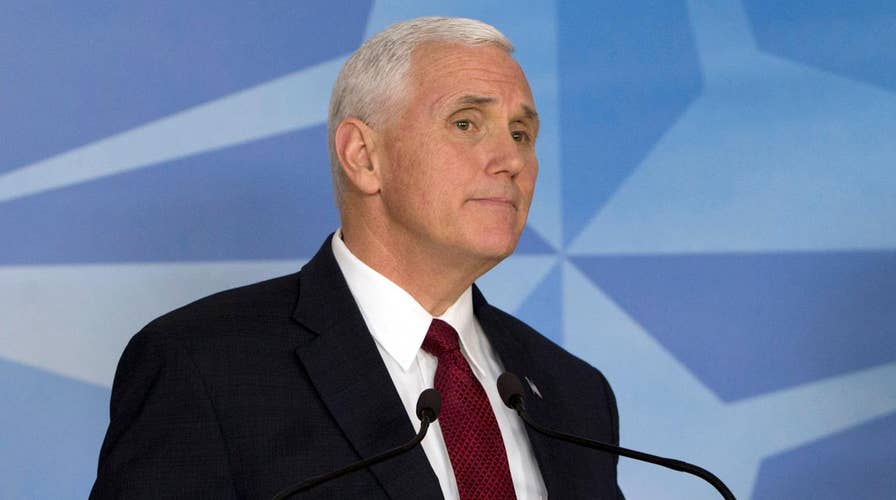VP Pence reaffirms US commitment to NATO, EU
Pence also prodded NATO countries to adhere to their defense spending commitments; Rich Edson has the story for 'Special Report'
Who is the actual leader of the free world?
This was the primary discussion and debate at the Munich Security Conference earlier this month. As if they shared talking points, in prepared remarks the Iranian and Russian foreign ministers referred to the "post-Western world order.”
These traditional enemies feel emboldened to criticize and even mock our great nation. It's clear that the last eight years under President Obama, our allies begrudgingly learned they could no longer depend on the U.S., and when our enemies tested our resolve, they learned they could get away with much more than they ever contemplated.
It was clear at the conference that there are worries among our European allies that an "America First" agenda actually means a continuation of Obama's foreign policy on steroids -- seeing the U.S. disentangle from its leadership role as opposed to forcefully asserting itself once again, and allowing a rising China and Russia to go unchecked.
However, Vice President Pence gave a commanding and reassuring speech that this is not the case. The vice president noted that America will continue to defend the world order-- to stand with our NATO allies, to counter illicit behavior from Iran and other rogue states, and to defend and protect the state of Israel.
Not surprisingly, the American and European press remained skeptical of the administration's commitment to the Alliance. However, one only needs to look not only at the strong words coming from Vice President Pence, but of the actions of the new administration. Within the first month of new administration, President Trump has dispatched his vice president, secretary of state, secretary of defense and secretary of homeland security to Europe's shores. This is unprecedented and underreported.
The world that felt a vacuum of leadership under President Barack Obama now worries that the vacuum is turning into a black hole. For those countries who share our ideals, I cannot blame them for their skepticism after the past eight years. NATO has been an unshakable bloc for decades, and the erosion of the confidence in this institution did not stem from President Trump's demands that our European allies pay their fair share, but rather the realization that America would let Crimea fall, that America would shrug off red lines, that America would not counter inappropriate behavior in the South China Sea.
The question lingering from the Munich Security Conference remains: Who will actually lead the free world? And are we indeed entering a post WWII/Western order? The world feels chaotic because it is.
As we enter a technological revolution that is bringing many revolutionary advancements, it will also end many jobs that currently exist. It's no surprise that in this uneasy time of major adjustment, people around the world feel insecure and want to retreat. For young people who are now in college, we have been at war for most of their adult lives, and our country is weary of continued threats, and perhaps weary of leading.
America's arms are heavy, our hearts are uncertain and our faith at times shaken in our political system. We can lead the fight -- but our allies need to hold up our arms by committing to NATO with the intensity in which we have committed.
The vice president (and the president's senior Cabinet members) made this point clear, despite the snark from many in the American media. The world is in a pivotal transition, one that President Obama saw as an opportunity for America to step back instead of stepping up.
In Munich, Vice President Pence has made clear that America will lead again, but we will do so with our allies fully committed.

